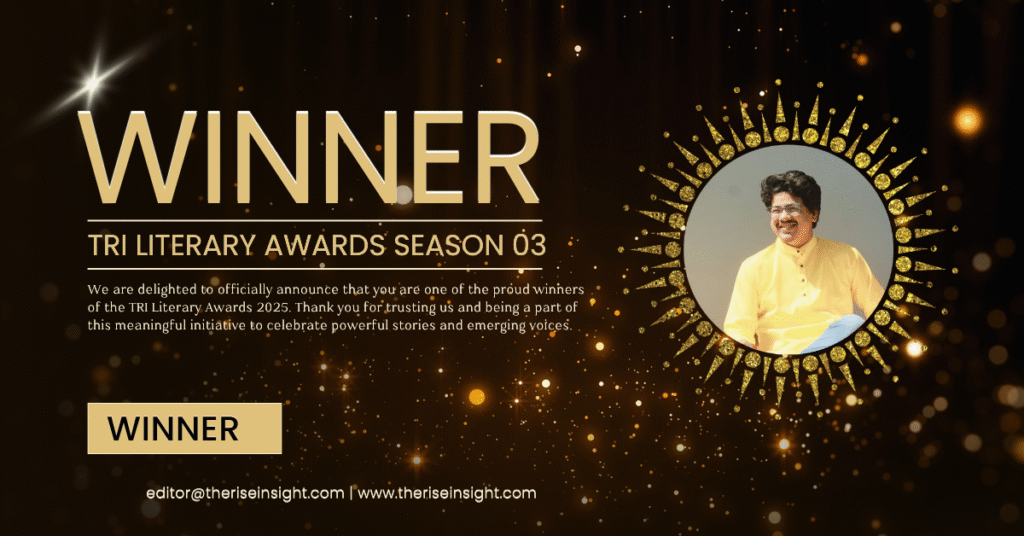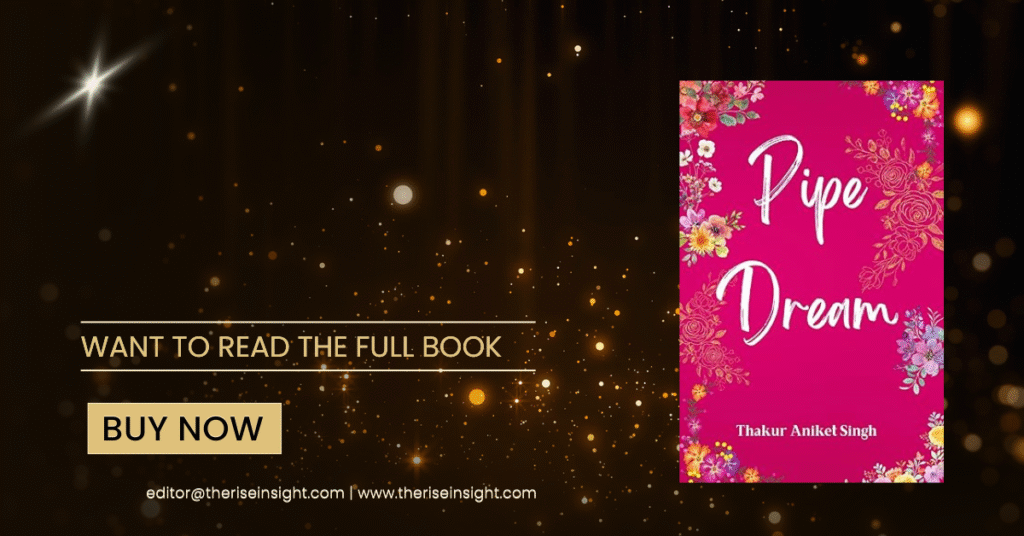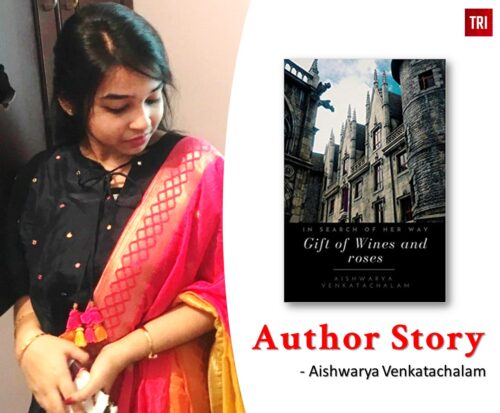
Heartiest Congratulations to Thakur Aniket Singh on winning the TRI Literary Awards Season 3 for his profoundly moving novel Pipe Dream! This is not just a recognition of literary excellence but a tribute to a writer who dares to write from the soul—raw, lyrical, and deeply human. Singh’s win is richly deserved, for Pipe Dream is more than a book—it is an immersion into the intimate, almost sacred, corridors of love, memory, and healing.
Table of Contents
ToggleA Tale of Scars, Silence, and Soul
At the heart of Pipe Dream lies a tender yet tumultuous love story between Krishna, a tormented artist, and Radhika, his muse and mirror. Their connection is nothing short of spiritual, but like most great loves, it is not spared the ravages of time, madness, and silence. The novel does not attempt to romanticize pain, nor does it shy away from the jagged edges of longing—it embraces both in equal measure, revealing the truth that love, in its truest form, often hurts before it heals.
Thakur Aniket Singh weaves the narrative with the delicacy of a poet and the precision of a surgeon. He lets the characters bleed and bloom on the page, and we as readers, bleed and bloom with them. The story unfolds not through spectacle but through sensation—through subtle glances, remembered touches, unfinished conversations, and the music of the unsaid.
The Artist and the Muse
Krishna is not a stereotypical “tortured genius” but a man unraveling at the edges of himself. Art is not his escape—it is his language, his survival mechanism, and sometimes, his cage. Radhika, on the other hand, is not merely an object of inspiration. She is complex, autonomous, and often elusive. In a literary world that often flattens female characters into archetypes, Singh gifts us a muse with her own shadows, her own silences, her own unspoken rebellions.
What makes their story exceptional is not the drama of their separation or reunion, but the intimacy of their transformation. Years after parting, when they meet again, the question is not just “Will they return to each other?” but “Will they recognize who they have become?” This is where Pipe Dream transcends romance and becomes a meditation on growth, grief, and grace.
Language That Lives and Breathes
Singh’s prose is a thing of wonder. It shimmers with lyricism but never loses sight of emotional truth. There are sentences in Pipe Dream that feel like poetry—fragile, beautiful, and quietly devastating. His metaphors are drawn not from clichés but from lived experience and deep observation. The rain doesn’t just fall—it remembers. A wound doesn’t just heal—it hums. The world in Pipe Dream is animated by memory and metaphor, and Singh writes it into being with reverence.
This is a novel that asks you to slow down. It invites you to sit with discomfort, to notice the breath between two lines, to feel the weight of a single word. In an age of noise, Singh offers silence. And in that silence, you hear everything.

Themes That Haunt and Heal
Pipe Dream is many things at once—a love story, a portrait of artistic anguish, a quiet elegy for lost time—but above all, it is an exploration of how people carry their pain and what it means to forgive: oneself, the past, and sometimes even love itself.
There is also a deep undercurrent of hope running through the narrative, not in grand gestures, but in small, ordinary miracles: a letter unopened for years, a song heard from across a street, a name remembered in the middle of a nightmare. Singh reminds us that healing doesn’t arrive like thunder—it tiptoes in, wearing the face of familiarity.
The title Pipe Dream itself is a paradox—a dream that seems unreachable, foolish even, and yet it persists. And so do Krishna and Radhika. So do we.
A Literary Voice of His Own
What sets Thakur Aniket Singh apart is his ability to write from the in-between spaces—the ones between silence and speech, between memory and forgetfulness, between loss and return. With his previous work, Naagshisya, he showed us his command over myth and horror. With Pipe Dream, he unveils a softer, more introspective voice, proving his range and reaffirming his place as one of the most promising contemporary literary voices.
Singh writes with an emotional precision that few authors dare attempt. He doesn’t tell us what to feel—he lets us discover it ourselves. He trusts the reader’s sensitivity, and in doing so, forges a rare bond between story and soul.
The Breath of Pendrawan
And how can one speak of Pipe Dream without mentioning the heartbeat of Pendrawan, Singh’s spiritual and geographic home? The village is not merely a setting—it is a living character. The earth there carries songs, the winds whisper truths, and the air remembers. Pendrawan breathes in every paragraph, rooting the characters and the readers in a soil that is at once specific and universal. Singh’s writing carries the scent of wet earth, the hush of dusk, and the ache of distance.
Through his words, Pendrawan becomes a metaphor for memory—quiet, eternal, and always calling you home.
Here is f individual feedback from each of the nine reviewers after reading Pipe Dream by Thakur Aniket Singh:
1. Prashant Sahu:
Pipe Dream is a masterclass in emotional minimalism. Singh doesn’t rely on elaborate plot twists; instead, he allows the quiet heartbreak of separation and the fragile beauty of reunion to take center stage. What touched me most was the sheer intimacy of the storytelling—it felt like eavesdropping on someone’s soul.
2. Sameer Gudhate:
Thakur Aniket Singh’s Pipe Dream is an emotionally rich and thematically powerful novel that delicately balances love, loss, and the healing power of time. His characters are not just well-drawn—they are alive. The novel reminded me that unresolved feelings often shape us more than we realize.
3. Apeksha Gupta:
There’s a rare lyrical grace to Singh’s writing, and Pipe Dream reflects this in every line. I found myself underlining sentences, re-reading paragraphs, and simply pausing to breathe in the beauty of the prose. This book is an experience, not just a narrative.
4. Akansha Sinha:
What stood out for me was the emotional rawness of Pipe Dream. Singh writes about pain with both vulnerability and strength. As a reader, I could see myself in Radhika’s silences and Krishna’s chaos. It’s a novel that asks you to feel deeply—and rewards you for doing so.
5. Glenville Ashby:
Singh’s literary sensitivity is evident in every chapter. Pipe Dream is not simply a story of love and regret—it’s a philosophical meditation on time, memory, and identity. He writes with spiritual undertones, grounding the characters in a world that feels ancient, eternal, and yet deeply human.
6. Pooja Sahu:
I was struck by how Pipe Dream captured the poetry in pain and the resilience in reflection. It’s a deeply therapeutic read. Singh has a gift for crafting emotionally resonant scenes that linger long after the page is turned. I felt seen and understood through this book.
7. Versha Singh:
The way Thakur Aniket Singh writes about emotional landscapes is astonishing. Pipe Dream made me think of all the “almosts” and “what-ifs” in my own life. The story might seem simple, but it is layered with meaning, and the language is hauntingly beautiful.
8. Shivangi Yadav:
Reading Pipe Dream felt like walking through a dreamscape of memories, some mine, some borrowed. The metaphors are delicate, the characters painfully real, and the emotional honesty profound. This is a book for anyone who has ever had to let go—or tried to hold on.
9. Kavita Kaushik:
Singh is a rare storyteller who trusts the quiet. Pipe Dream is filled with those silences between words where the most profound truths lie. The relationship between Krishna and Radhika is so authentic, so human, it felt like revisiting a love I once knew. Simply unforgettable.
Final Thoughts: A Book That Stays
Reading Pipe Dream is not a passive experience. It demands you. It asks you to sit with your own forgotten feelings, your own unresolved stories, your own buried selves. And in return, it offers something rare: solace without sugarcoating, beauty without pretense, love without illusion.
This book lingers long after the final page. It whispers to you when you least expect it. It reminds you of people you once loved, words you never said, and dreams you dared to dream.
In Pipe Dream, Thakur Aniket Singh does not merely write a story. He tends to a wound. He cradles a truth. And in doing so, he gives us not just literature, but something sacred.
Once again, congratulations to Thakur Aniket Singh for winning the TRI Literary Awards Season 3. This accolade is not just for a book well written, but for a heart bravely opened. Thank you for reminding us that in a world quick to forget, poetry still remembers—and sometimes, dreams do come true.




